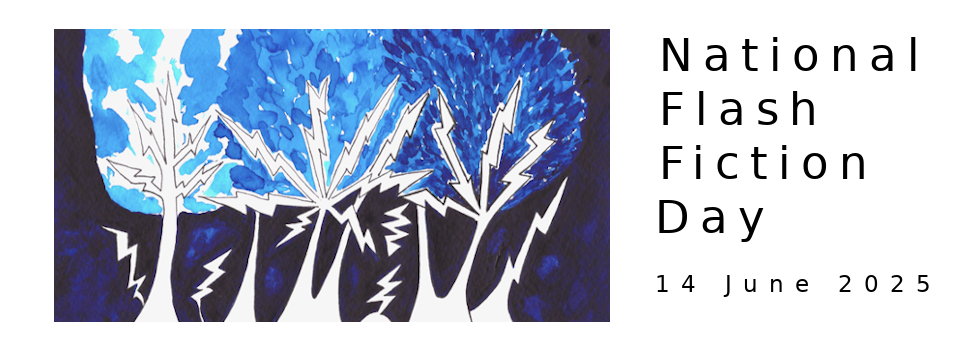The Team are:
Calum Kerr
Caroline Kelly
Cassandra Parkin
Nettie Thomson
Susan Howe
Susi Holliday
Shirley Golden
Save the Date: we're celebrating the next National Flash Fiction Day on 14 June 2025!

Learn more about Tim at www.timjstevenson.com
We now have only just over a week to go until this year's National Flash-Fiction Day. Can you feel the excitement in the air? We can almost taste it...
Once more, we are running the FlashFlood journal and submissions are now open over at http://flashfloodjournal.blogspot.co.uk/.
We also have events listed on our website that you can get involved with: http://host2021.temp.domains/~nationo0/events.html.
To whet your appetite for the day, (and, frankly, to ramp up the tension), over the next week we're going to be posting a series of articles about flash-fiction from a variety of different writers. We'll also feature one of their stories, just to give you some relief from that horrible non-fictiony stuff.
If you would like to contribute an article and story, please get in touch at nationalflashfictionday@gmail.com.
But, with no further ado, let's on with the first one, from this year's Micro-Fiction competition winner, Tim Stevenson.
We received nearly 450 entries for our competition this year, and the standard was amazingly high. Choosing just 10 winners was incredibly difficult, but the judges managed it in the end.
So, without any further fanfare, the winners - and their stories - are...
First Prize: 'A Handful' by Tim Stevenson
Second Prize: 'Spinning' by Oliver Barton
Third Prize: 'X' by Amy Mackelden
Highly Commended:
'Lost For Words' by Andrea Mullaney
'My Grandad was Roy Rogers' by Anouska Huggins
'Dot to Dot man' by Alison Wells
'Slather' by Clare Kirwan
'The Gradual Discovery of Loss' by Eva Holland
'All Light' by Alan Beard
'India' by Joanna Campbell
Congratulations to all of them!
Hello everyone,
Well, our crowd-sourced fundraising experiment ended yesterday and, while we didn't hit out target, we're still really pleased and grateful to everyone who helped out by either donating directly or simply spreading the word and helping others with spare cash to find us.
Our specific thanks need to go to our sponsors who were, in no particular order:
Hello all,
Pleased to announce that we now have our longlist for the Micro-Fiction competition. The judges are whittling it down to the winners and so I don't want to reveal who wrote which story, but here is a list of the authors who made it to the top. Congratulations to them all!
Oliver Barton
Alan Beard
Joanna Campbell
Stephen Carragher
Donald Chegwin
Amber Dodd
Lindsay Fisher
Glenys Grey
Kit Haggard
Eva Holland
Susan Howe
Anouska Huggins
Clare Kirwan
Debbie Kinsey
Chelsea Covington Maass
Amy Mackelden
Pauline Masurel
Andrea Mullaney
Jo Norris
Tim Stevenson,
Pete Walsh
Barbara Weeks
Alison Wells
Selina Siak Chin Yoke
Dear All,
Well, hello there, and how are you?
--